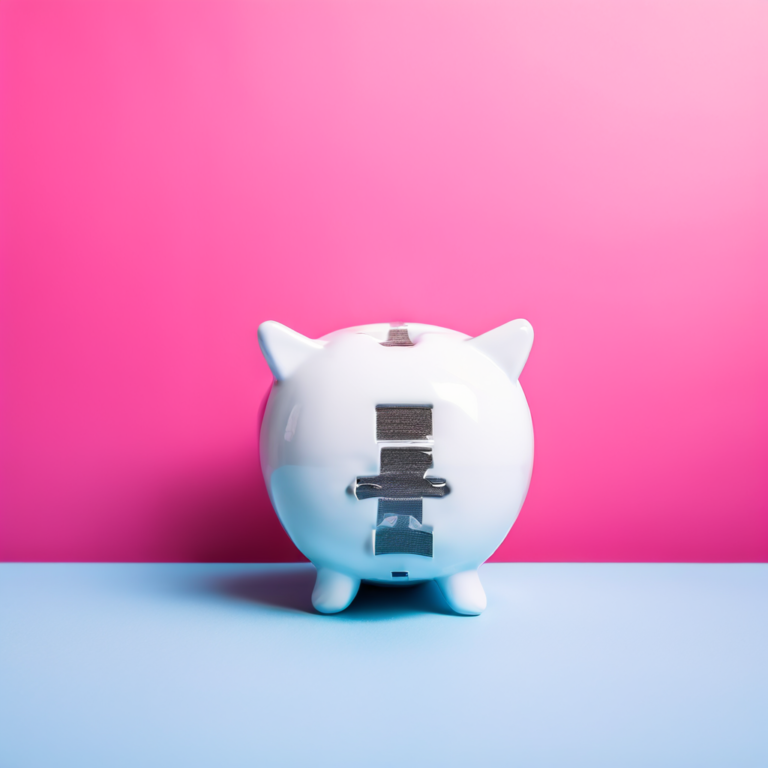How to Manage Debt Effectively and Improve Your Credit Score
Introduction
Debt can either be a stepping stone to financial success or a roadblock to stability. If not managed well, it can negatively impact your credit score and limit future financial opportunities. However, with the right strategies, you can take control of your debt, improve your credit score, and build a stronger financial future. This guide will provide practical steps to manage debt effectively and boost your credit score.
Understanding Debt and Its Impact on Credit
Debt plays a crucial role in your financial health, affecting everything from your credit score to your ability to secure future loans. Understanding the different types of debt, how they impact your credit, and the risks involved in carrying high-interest debt can help you manage your finances more effectively.
Different Types of Debt
Not all debt is the same—some types can help you build credit and achieve financial goals, while others can quickly become overwhelming if not managed properly. Here are the most common types of debt:
- Credit Cards: A form of revolving debt with high-interest rates if balances are carried month to month. Credit cards can help build credit when used responsibly.
- Student Loans: Borrowed money to finance education, often with lower interest rates and flexible repayment options. These loans can impact credit based on payment history and loan term.
- Mortgages: Long-term loans used to purchase homes. Since mortgages are secured debt (backed by property), they typically offer lower interest rates and positively impact credit when paid on time.
- Personal Loans: Unsecured loans that can be used for various purposes, such as medical expenses or home improvements. These loans typically have fixed interest rates and repayment terms.
- Auto Loans: Loans specifically for purchasing vehicles, often secured by the car itself. Missing payments can lead to repossession and negatively impact credit scores.
Each type of debt has different repayment structures and interest rates, which influence how they affect your credit.
How Debt Influences Credit Scores
Your credit score is a numerical representation of your financial responsibility, and your debt plays a major role in how it’s calculated. The five key factors that determine your credit score include:
- Payment History (35%) – Making on-time payments on your debts is the biggest factor affecting your credit score. Late or missed payments can lower your score significantly.
- Credit Utilization (30%) – This measures how much of your available credit you’re using. Ideally, you should keep your credit card balances below 30% of your total limit.
- Length of Credit History (15%) – The longer you have credit accounts open, the better. Keeping old accounts open (even if not in use) helps increase your average credit age.
- Credit Mix (10%) – Having a mix of different types of debt (credit cards, loans, mortgages) can improve your score, as it shows lenders you can manage multiple forms of credit.
- New Credit Inquiries (10%) – Applying for too many new credit accounts in a short time can slightly lower your score, as it may indicate financial instability.
By managing debt responsibly, you can maintain a strong credit score and qualify for better financial opportunities.
The Risks of Carrying High-Interest Debt
High-interest debt, particularly from credit cards and payday loans, can quickly spiral out of control if not managed properly. Here’s why it’s risky:
- Compounding Interest – If you only make the minimum payment on a credit card, interest accrues on the remaining balance, increasing the total debt over time.
- Increased Monthly Payments – High-interest rates mean more of your payment goes toward interest rather than reducing the principal balance.
- Debt Cycle – Relying on high-interest debt to cover everyday expenses can lead to a dangerous cycle of borrowing, making it harder to achieve financial stability.
- Negative Credit Impact – Carrying high balances and missing payments can hurt your credit score, making it harder to qualify for loans with lower interest rates.
Budgeting to Stay on Top of Debt Payments
A well-structured budget is essential for managing debt effectively. By setting realistic spending limits, prioritizing payments, and cutting unnecessary expenses, you can stay on top of your debt while maintaining financial stability.
Set Up a Realistic Monthly Budget
Creating a realistic budget ensures that debt payments fit into your overall financial plan without causing unnecessary stress. Follow these steps to structure a budget that supports debt repayment:
-
List All Sources of Income:
- Include your salary, side gigs, rental income, and any other regular earnings.
- If your income fluctuates, use an average based on past months.
-
Track Fixed and Variable Expenses:
- Fixed Expenses: Rent/mortgage, utilities, insurance, subscriptions.
- Variable Expenses: Groceries, dining out, entertainment, shopping.
- Debt Payments: Minimum payments on credit cards, loans, and other outstanding balances.
-
Allocate Funds for Debt Repayment:
- Set aside a specific amount each month to pay down debt.
- Consider using the 50/30/20 rule (50% needs, 30% wants, 20% savings & debt).
- Adjust other expenses to increase debt repayment amounts.
-
Create a Cushion for Unexpected Costs:
- Allocate a small portion of your budget for unexpected expenses (car repairs, medical bills).
- This prevents reliance on credit cards in emergencies.
Cut Unnecessary Expenses to Free Up More Money
Reducing non-essential spending can help speed up debt repayment. Some effective ways to cut costs include:
✅ Cancel Unused Subscriptions: Review recurring charges for streaming services, gym memberships, and other subscriptions you don’t use.
✅ Cook More at Home: Reduce dining out and prepare meals at home to save on food costs.
✅ Limit Impulse Purchases: Use a 24-hour rule before making non-essential purchases to avoid unnecessary spending.
✅ Reduce Utility Bills: Lower energy consumption by turning off unused appliances and using energy-efficient products.
✅ Find Affordable Entertainment Options: Explore free or low-cost activities instead of costly entertainment.
By identifying areas where you can reduce expenses, you can reallocate more funds toward paying off debt faster.
Use Budgeting Apps to Track Spending and Ensure Timely Payments
Staying organized is crucial for keeping up with debt payments. Budgeting apps can help monitor expenses, set reminders, and track progress toward debt freedom.
📱 Best Budgeting Apps for Debt Management:
- Mint: Automatically categorizes transactions and tracks spending.
- YNAB (You Need a Budget): Helps allocate every dollar with the zero-based budgeting method.
- PocketGuard: Shows how much money is available after bills and savings.
- Goodbudget: Uses the envelope budgeting system to manage different expenses.
Using a budgeting app ensures that you never miss a debt payment while maintaining control over your finances.
Strategies to Improve Your Credit Score
A strong credit score is essential for securing better loan rates, lower insurance premiums, and financial stability. Improving your credit score requires consistent financial habits and responsible credit management. Here are the best strategies to boost your score effectively.
Pay Bills on Time – Payment History Makes Up 35% of Your Credit Score
Your payment history is the biggest factor influencing your credit score, accounting for 35% of the total calculation. Late or missed payments can significantly damage your score, while consistent on-time payments help improve it over time.
How to stay on top of payments:
✔ Set up automatic payments for credit cards, loans, and utility bills to avoid late fees.
✔ Use payment reminders through banking apps or budgeting tools.
✔ Prioritize high-impact payments (credit cards, loans, and mortgages) over non-reporting bills (gym memberships, subscriptions).
✔ If you miss a payment, pay it ASAP—late payments are reported after 30 days, so acting quickly can prevent score damage.
Even one late payment can lower your score, so making payments on time is crucial for maintaining and improving credit health.
Reduce Credit Utilization Ratio by Keeping Balances Low on Revolving Credit
Credit utilization refers to how much of your available credit you’re using, and it makes up 30% of your credit score. A high balance relative to your credit limit can signal financial risk to lenders.
Best practices for managing credit utilization:
✔ Keep credit utilization below 30%—for example, if you have a $10,000 credit limit, try to keep balances below $3,000.
✔ Pay down balances before the statement closing date to lower reported utilization.
✔ Ask for a credit limit increase—a higher limit lowers your utilization without increasing debt.
✔ Spread balances across multiple cards rather than maxing out one card.
The lower your utilization, the better. A utilization rate under 10% is ideal for maximizing your credit score.
Avoid Opening Too Many New Accounts at Once to Prevent Hard Inquiries
Each time you apply for new credit, a hard inquiry is added to your credit report, temporarily lowering your score. Opening multiple accounts within a short period signals risk to lenders and can hurt your score.
How to manage new credit responsibly:
✔ Apply for new credit only when necessary, not just to increase available credit.
✔ Limit applications—multiple hard inquiries within a short time can lower your score by a few points each.
✔ Space out credit applications—if you need multiple credit lines, wait at least six months between applications.
✔ Use pre-qualification tools to check eligibility without affecting your score.
While new credit accounts make up 10% of your credit score, frequent applications can raise red flags for lenders, making approvals harder.
Keep Old Accounts Open to Maintain a Longer Credit History
Your length of credit history makes up 15% of your credit score. The longer your accounts remain open, the better your credit profile looks to lenders. Closing old accounts can shorten your credit history and increase your credit utilization, both of which can negatively impact your score.
Ways to maintain a strong credit history:
✔ Keep old credit cards open (even if not used) to preserve account age.
✔ Use older accounts for small purchases and pay them off to keep them active.
✔ Avoid closing credit cards unless necessary—even if you no longer need them, keeping them open helps your credit score.
Even if you’re no longer using an old credit card, it’s often best to keep it open, especially if it has no annual fees.
FAQs
Q: What is the best way to pay off debt?
A: Use the snowball method (paying off small debts first) or the avalanche method (paying off high-interest debt first) to reduce debt faster.
Q: How can I avoid getting into more debt?
A: Stick to a budget, spend within your means, and avoid using credit cards for unnecessary purchases.
Q: Does paying off debt improve my credit score?
A: Yes! Paying off debt lowers your credit utilization and shows responsible financial behavior, which boosts your credit score.
Q: What is a good credit utilization ratio?
A: Keep your credit utilization below 30% of your total credit limit to maintain a good score.
Q: How often should I check my credit report?
A: At least once a year to catch errors and track your credit health. You can get a free credit report from major credit bureaus.
Q: Can consolidating debt help improve my credit score?
A: Yes, consolidating debt into a lower-interest loan can make payments easier and reduce your total debt faster.
Conclusion
Managing debt and improving your credit score is a journey that requires discipline, planning, and consistent effort. By following smart repayment strategies, staying within a budget, and using credit responsibly, you can regain financial control. Start making small changes today, and over time, you’ll see a significant impact on your financial well-being.





